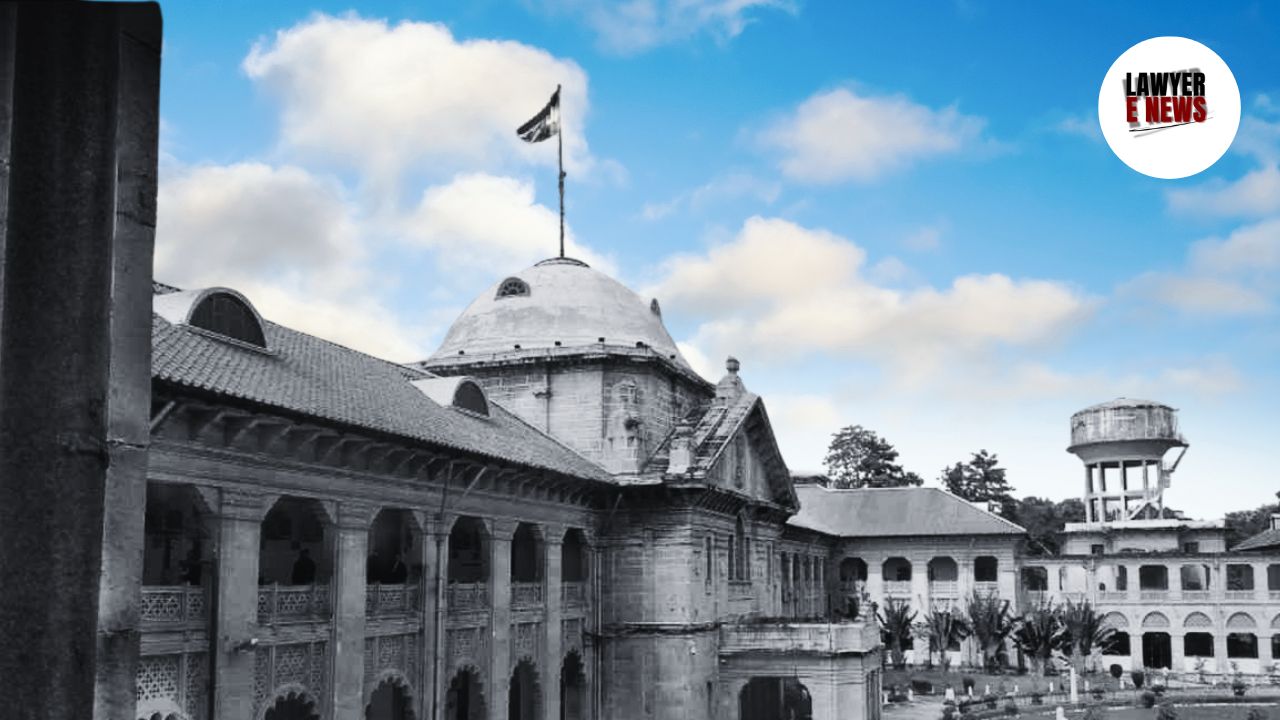-
by sayum
14 February 2026 2:22 PM



Family Courts Can Entertain Recall Applications in Maintenance Proceedings, Despite Section 362 Cr.P.C. Embargo
The Allahabad High Court has overturned a Family Court decision that dismissed a restoration application in a maintenance case, affirming that Family Courts retain jurisdiction to recall orders in maintenance proceedings under Sections 125 and 127 of the Code of Criminal Procedure (Cr.P.C.). The judgment, delivered by Hon’ble Dr. Yogendra Kumar Srivastava, J., underscores a beneficent and purposive interpretation of maintenance provisions to achieve social justice, clarifying that the embargo under Section 362 Cr.P.C. does not strictly apply in maintenance cases due to their social welfare objective.
The petitioners, Smt. Hema and another, filed a maintenance application under Section 125 Cr.P.C. in 2014, which was granted ex-parte in 2016, awarding Rs. 10,000 per month to petitioner no. 1 and Rs. 2,000 per month to petitioner no. 2. This ex-parte order was recalled in 2018 upon an application by the respondent, Dhirendra Pratap Singh. On 29th October 2022, the Family Court dismissed the maintenance petition for non-prosecution. The petitioners filed a restoration application on the same day, which the Family Court dismissed on 2nd January 2023, stating that it lacked jurisdiction to entertain such applications. Aggrieved, the petitioners approached the High Court.
Credibility of Legislative Scheme: The High Court emphasized the legislative intent behind Sections 125 and 127 Cr.P.C., focusing on the social purpose of providing immediate relief to destitute individuals. "The legislative scheme contained under Sections 125 to 127 Cr.P.C. is in the nature of a benevolent provision having a social purpose with the primary object to ensure social justice to the wife, child, and parents, who are unable to support themselves so as to prevent destitution and vagrancy," the court observed.
Magistrate’s Jurisdiction and Functus Officio: The court examined whether the Family Court becomes functus officio after dismissing a maintenance application for non-prosecution. "The Magistrate does not become functus officio after passing an order under Section 125 Cr.P.C., as and when the occasion arises the Magistrate exercises the jurisdiction from time to time," stated the court. This assertion clarifies that magistrates retain ongoing jurisdiction to revisit maintenance orders as circumstances require.
Embargo of Section 362 Cr.P.C.: Addressing the applicability of Section 362 Cr.P.C., which restricts courts from altering or reviewing their judgments, the court noted, "The embargo under Section 362, when read in the context of the provisions of Sections 125-127 Cr.P.C., would have to be understood in a manner so as to advance the social object of the legislation rather than to whittle it down." The court thereby recognized that the restrictive provisions of Section 362 Cr.P.C. do not strictly apply to maintenance proceedings, given their unique social welfare objectives.
The judgment extensively discussed the principles of statutory interpretation, particularly in the context of social justice legislation. "Applying the principle of purposive construction, the provisions contained under Sections 125-127 when read in conjunction with Section 362, would lead to the conclusion that the embargo contained under Section 362, is expressly relaxed in proceedings under Section 125 Cr.P.C.," the court stated. This legal reasoning reinforces the ongoing authority of Family Courts to revisit and potentially alter maintenance orders to better serve justice.
Justice Dr. Y.K. Srivastava remarked, "The provision relating to orders for maintenance under Section 125 Cr.P.C., being in the nature of a 'social justice legislation', the role and duty of the Courts, in the said context, would be to understand the purpose of the enactment and to help the law achieve its objective." This underscores the judiciary's commitment to interpreting laws in a manner that furthers their intended social benefits.
The Allahabad High Court's decision to allow the petition and remit the matter for fresh consideration by the Family Court underscores the judiciary's dedication to upholding social justice in maintenance cases. By affirming that Family Courts are not functus officio and can entertain recall applications in maintenance proceedings, the judgment sets a precedent for future cases, reinforcing the continuous and dynamic nature of judicial oversight in matters of social welfare. This landmark decision is expected to ensure more robust protection for the rights of individuals seeking maintenance, thereby preventing destitution and vagrancy.
Date of Decision: 16th May 2024
